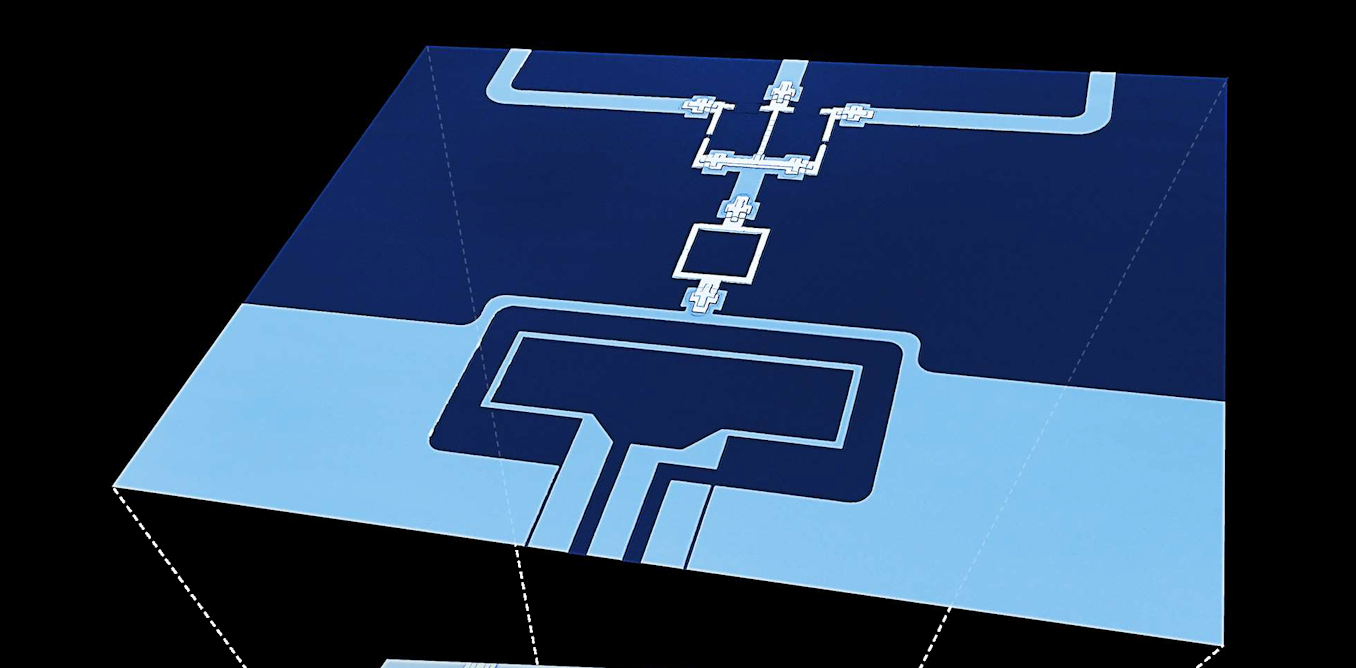Science
Nobel Prize in Physics Honors Pioneers of Quantum Electronics

The 2025 Nobel Prize in Physics has been awarded to three trailblazing scientists for their groundbreaking research in ultracold electronics, a field that has significantly advanced quantum technology. Their work demonstrated that superconducting circuits can exhibit quantum behavior, paving the way for practical applications in quantum computing, which promises to tackle complex problems beyond the reach of traditional computers.
The laureates, John Martinis, Michel Devoret, and John Clarke, made pivotal discoveries in the 1980s, establishing that even large electrical circuits could function according to quantum mechanics. Their research utilized superconducting materials, specifically niobium and lead, which become superconductors when cooled to just above absolute zero. This ability to conduct electricity without heat loss is crucial for the development of efficient quantum technologies.
Groundbreaking Discoveries in Quantum Behavior
In their foundational studies conducted in 1984 and 1985, Martinis, then a Ph.D. student, along with postdoctoral researcher Devoret and professor Clarke, demonstrated that superconducting circuits possess quantized energy levels. This phenomenon allows these circuits to exist in superpositions of multiple states, a key feature of quantum mechanics. The importance of their research lies in the ability to describe these circuits as single quantum particles, making them essential for various applications in quantum computing and sensing technologies.
Today, superconducting circuits are widely used to explore fundamental physics, simulate complex physical systems, and enhance precision in measurements. For instance, the Devoret group has developed a near-ideal microwave amplifier based on superconducting circuits, which has extensive applications in communications and scientific instrumentation. Similarly, the Martinis group has utilized these circuits to simulate electron-like particles, contributing significantly to fundamental physics research.
The Future of Quantum Computing
The most substantial impact of superconducting circuits lies in their application as a platform for quantum computing. In this technology, quantum bits, or qubits, can interact and become entangled, allowing them to function as a unified system. This entanglement, along with quantization and superposition, enhances the computational power of quantum computers.
For quantum computing to be effective, qubits must exhibit coherence, controllability, and scalability. While various technologies show promise—including trapped ions and atoms—superconducting circuits stand out for their simplicity and flexibility. Researchers can easily manipulate circuit designs to achieve desired qubit behaviors, making them a preferred choice for advancing quantum computing capabilities.
As research progresses, academic groups, including my own, are focused on developing new types of superconducting qubits, improving coherence, and enhancing control mechanisms. Collaborations with companies and government laboratories are essential for translating these academic advancements into large-scale quantum processors.
The contributions of Martinis, Devoret, and Clarke extend beyond their initial discoveries in the 1980s. Martinis has led significant efforts at Google to develop quantum processors, while Devoret continues to assist in similar projects. Clarke, now retired, has also been influential in shaping the field of quantum circuits.
Their legacy is evident in the careers of countless researchers who have been inspired by their work. The profound impact of their discoveries is evident not only in academic achievements but also in the ongoing development of quantum technologies that hold the potential to revolutionize fields ranging from cryptography to materials science.
As we celebrate the recognition bestowed upon these pioneers, the future of quantum technology looks promising. Researchers trained by these laureates are poised to carry the torch forward, striving to unlock the full potential of quantum computing for the benefit of society.
-

 World4 months ago
World4 months agoTest Your Knowledge: Take the Herald’s Afternoon Quiz Today
-

 Sports4 months ago
Sports4 months agoPM Faces Backlash from Fans During Netball Trophy Ceremony
-

 Lifestyle4 months ago
Lifestyle4 months agoDunedin Designers Win Top Award at Hokonui Fashion Event
-

 Entertainment4 months ago
Entertainment4 months agoExperience the Excitement of ‘Chief of War’ in Oʻahu
-

 Sports4 months ago
Sports4 months agoLiam Lawson Launches New Era for Racing Bulls with Strong Start
-

 World5 months ago
World5 months agoCoalition Forms to Preserve Māori Wards in Hawke’s Bay
-

 Lifestyle4 months ago
Lifestyle4 months agoDisney Fan Reveals Dress Code Tips for Park Visitors
-

 Health4 months ago
Health4 months agoWalking Faster Offers Major Health Benefits for Older Adults
-

 Politics4 months ago
Politics4 months agoScots Rally with Humor and Music to Protest Trump’s Visit
-

 Top Stories5 months ago
Top Stories5 months agoUK and India Finalize Trade Deal to Boost Economic Ties
-

 Health2 months ago
Health2 months agoRadio Host Jay-Jay Feeney’s Partner Secures Visa to Stay in NZ
-

 World5 months ago
World5 months agoHuntly Begins Water Pipe Flushing to Resolve Brown Water Issue









